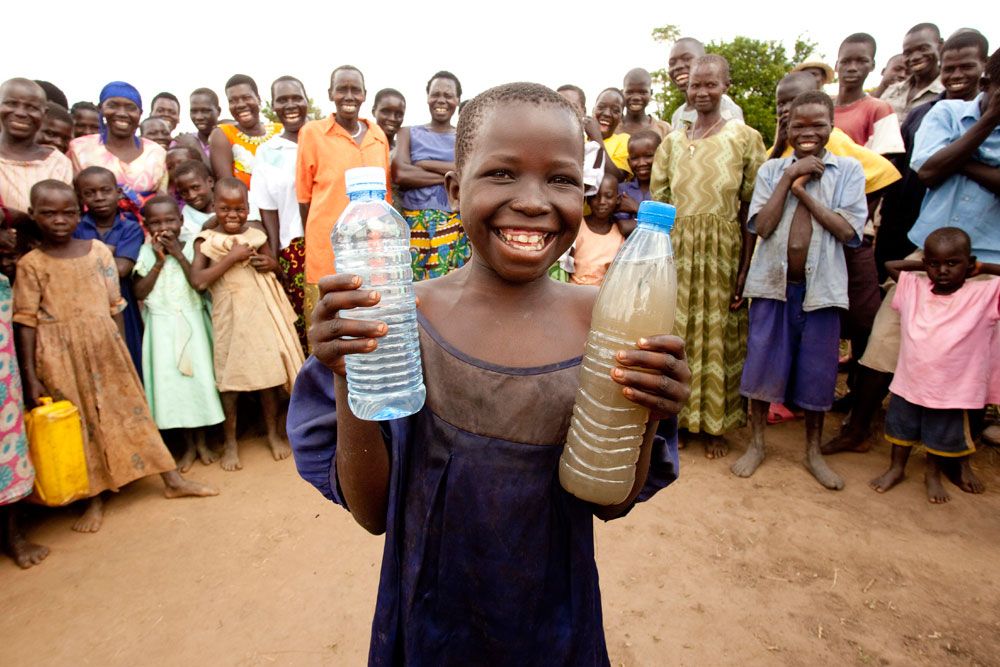World Water Day, celebrated annually on March 22, is a date whose main objective is to raise awareness among the world's population about the importance of water for the maintenance of ecosystems and life on the planet. The date aims to encourage the adoption of sustainable practices related to the management of water resources.
According to data from the United Nations (UN), about 2.2 billion people in the world do not have access to drinking water and 4.2 billion do not have access to basic sanitation services. This reality demonstrates the urgency of a more efficient and sustainable management of water, especially in developing countries.
In 2023, the theme chosen by Un-Water (the United Nations body for water-related issues) to commemorate World Water Day is “Accelerating change”. The objective is to encourage new ways of using, consuming and managing water in our lives, in search of a more efficient and sustainable management of this valuable resource.
The Global Urgency of Meeting SDG 6 by 2028
The UN's 6th Sustainable Development Goal (SDG 6), which deals with water and sanitation, aims to ensure universal and equitable access to safe water and basic sanitation for all by 2030. According to a Report carried out jointly by the World Organization (WHO), United Nations Children's Fund (UNICEF) and the World Bank, released in 2022, about 25% of the world's population does not have access to safe drinking water worldwide – we are talking about approximately 2 billion people who they do not have minimum conditions of access to clean and safe water or to basic sanitation. The report presents recommendations structured around five accelerators of the SDG 6 global framework: governance, finance, capacity building, data, information and innovation.
It is necessary that all the entities involved in the fulfillment of the established goals are engaged with the administrative responsibility of the financial contributions destined to the solution of the lack of access to a fundamental resource for life. It is important to recognize that lack of access to safe drinking water is a problem that affects millions of children around the world. Many of these children live in rural areas or in developing countries where access to clean water is limited or non-existent. They are forced to drink water from polluted sources, which makes them vulnerable to waterborne diseases such as cholera, diarrhea and typhoid fever. In addition, many children are forced to walk long distances every day to collect water, often in dangerous conditions, and miss out on the opportunity to attend school.
Many examples illustrate how countries have risen to the challenge of providing safe drinking water. It is clear that clean water is a service that offers incalculable economic and health benefits, as well as essential quality of life outcomes. Therefore, there is a need to dramatically increase local government leadership and investment in clean water services, managed safely and with real results. “Investing in water and sanitation is critical to health, economic growth and the environment. Healthier children become healthier adults who contribute more to the economy and society,” said the director of the World Bank's Water Global Practice group, Saroj Kumar Jha.
Also according to the same report, governments should invest more in building safe drinking water systems to ensure greater access to this resource and mitigate the effects of climate change. The report highlights the importance of investing in safe drinking water systems to meet the growing demands for clean water, as well as to address the challenges that come with climate change.
In addition, the document also highlights the need for a stronger political and financial commitment to provide equitable access to safe drinking water, especially for the poorest and most marginalized communities. This is crucial to ensure social justice and equity in access to water, regardless of income or place of residence.
Driving the Change Needed to Achieve UN SDG 6 Targets
To achieve the goals of the 6th UN SDG, it is necessary to promote a change in behavior and abandon the “business as usual“. Investments in water and sanitation infrastructure, public policies for the sustainable management of water resources, education and awareness of the population about the conscious use of water are essential to revert the current scenario.
However, the responsibility does not lie solely with governments. Every individual and community has an important role to play in conserving water resources. We must change the way we use, consume and manage water in our lives, promoting more efficient technologies for the treatment, distribution and reuse of water.
To accelerate the change we want to see in the world, it is necessary that each one of us takes responsibility for promoting actions that guarantee the sustainability of our planet. Water is a fundamental and scarce resource, and it is up to each one of us to do our part to guarantee its preservation and conscious use. Change starts with small daily actions, but the impact will be felt in the long term.




